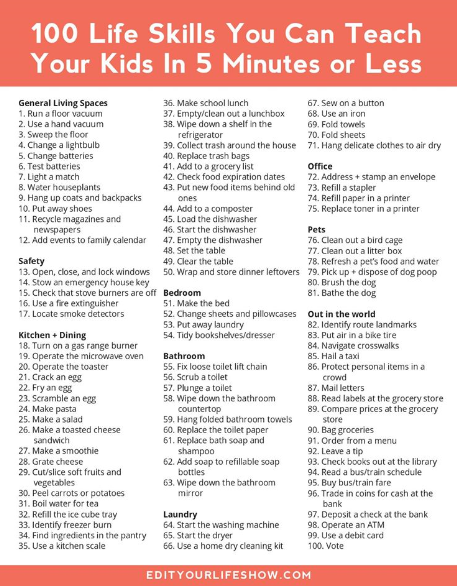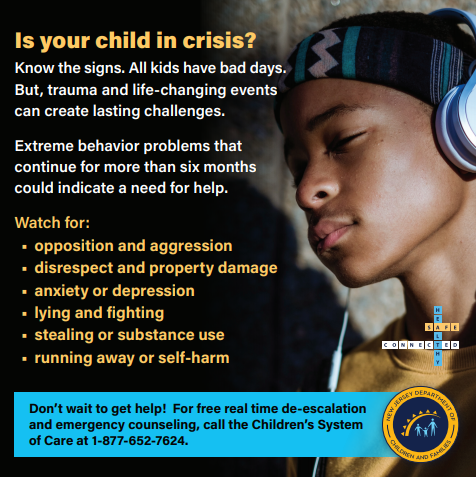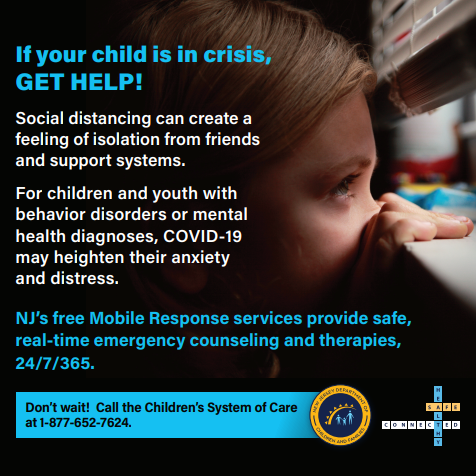|
2-1-1 Addiction Hotline
www.nj211.org 2-1-1 provides free, personal assistance to anyone trying to navigate the health and human services system, government assistance programs, and local community resources in their struggle with substance abuse issues. 2-1-1 provides information and referral services 24 hours a day, 7 days a week. |
CapeAtlantic ResourceNet http://www.capeatlanticresourcenet.org CapeAtlantic ResourceNet is an on-line directory of Atlantic and Cape May Counties’ many valuable resources. It is for all community members to use as a way to locate resources geared toward youth up to age 21 and their families throughout their local communities. |
|
Centers for Disease Control and Prevention www.cdc.gov (main site) www.cdc.gov/alcohol/index.htm (Alcohol and public health) The Centers for Disease Control and Prevention (CDC), located in Atlanta, Georgia, USA, is an agency of the Department of Health and Human Services established to promote health and quality of life by preventing and controlling disease, injury, and disability. |
National Institute on Alcohol Abuse and Alcoholism https://www.niaaa.nih.gov/publications/brochures-and-fact-sheets/parenting-prevent-childhood-alcohol-use The National Institute on Alcohol Abuse and Alcoholism, as part of the U.S. National Institutes of Health, supports and conducts biomedical and behavioural research on the causes, consequences, treatment, and prevention of alcoholism and alcohol-related problems. |
|
NJ Parent Link www.njparentlink.nj.gov/njparentlink NJ Parent Link is a statewide website initiative made possible by the work of the New Jersey Early Childhood Comprehensive System (NJ ECCS) Team. The focus of the website is to highlight NJ state services and resources. Federal, nationally-respected and community partner resources are also included. |
ParentCheckNJ parentchecknj.com/ The NJ Social Marketing Collaborative was developed by the New Jersey Prevention Network (NJPN), the Partnership for a Drug Free New Jersey (PDFNJ) and the New Jersey AD Club in order to positively impact the 18 to 25 year olds and their parents. Bringing together the expertise of these three organizations and adding the full Collaborative membership establishes a strong base to develop and implement a statewide effective prevention program. |
|
Parents Empowered parentsempowered.org/ is to eliminate underage drinking in along with the devastating effects that alcohol has on children. We do this by motivating and enabling parents to take a more active role in keeping their children alcohol-free. |
Parent to Parent www.parent2parentnj.org Parent-To-Parent is a Grassroots Coalition for parents and loved ones who are suffering the ravaging effects of substance abuse. |
|
Partnership for Drug-Free Kids https://drugfree.org/ organization for families addressing every aspect of substance use and addiction, from prevention to recovery. Empowering parents and caregivers with support and guidance using the latest science-based information. |
SAMHSA - Substance Abuse and Mental Health Services Administration https://www.samhsa.gov/ The Substance Abuse and Mental Health Services Administration (SAMHSA) is the agency within the U.S. Department of Health and Human Services that leads public health efforts to advance the behavioral health of the nation. SAMHSA's mission is to reduce the impact of substance abuse and mental illness on America's communities. |
Stopbullying.gov
stopbullying.gov/index.html
Stopbullying.gov provides information from various government agencies on how kids, teens, young adults, parents, educators and others in the community can prevent or stop bullying.
Underage Drinking Information for Parents
Did You Know?
Underage drinking leads to nearly 5,000 deaths annually and costs the economy an estimated $24 billion each year.
Drinking under the age of 21 is strongly linked with alcohol impaired driving.
There is evidence that the Minimum Legal Drinking Age (MLDA) of 21 protects drinkers from alcohol and other drug dependence, adverse birth outcomes, and suicide/homicide. The MLDA helps save lives, prevent motor vehicle crashes, and decreases underage drinking.
There are many consequences of underage drinking, such as an increased risk of dependency later in life, school issues, social issues, legal issues, and more.
Underage drinking leads to nearly 5,000 deaths annually and costs the economy an estimated $24 billion each year.
Drinking under the age of 21 is strongly linked with alcohol impaired driving.
There is evidence that the Minimum Legal Drinking Age (MLDA) of 21 protects drinkers from alcohol and other drug dependence, adverse birth outcomes, and suicide/homicide. The MLDA helps save lives, prevent motor vehicle crashes, and decreases underage drinking.
There are many consequences of underage drinking, such as an increased risk of dependency later in life, school issues, social issues, legal issues, and more.
New Jersey Laws
Providing Alcohol to Persons Under 21
It is a criminal offense in the State of New Jersey (2C:33-17a) to serve alcohol to anyone under the legal age of 21. You could receive a fine of up to $1,000 and/or up to 6 months imprisonment.
Allowing Alcohol Possession or Consumption by Persons under 21 at Private Premises
It is a criminal offense in the State of New Jersey (2C:33-17b) to make your home or property available for the purpose of allowing minors a place to consume alcohol. You could receive a fine of up to $1,000 and /or up to 6 months imprisonment.
*Exemptions: Any underage person or persons who possesses or consumes alcoholic beverages in connection with religious observance, ceremony or right or consumes or possesses an alcoholic beverage in the presence of and with the permission of the guardian who has reached the legal age to purchase and consume alcoholic beverages.*
Providing Alcohol to Persons Under 21
It is a criminal offense in the State of New Jersey (2C:33-17a) to serve alcohol to anyone under the legal age of 21. You could receive a fine of up to $1,000 and/or up to 6 months imprisonment.
Allowing Alcohol Possession or Consumption by Persons under 21 at Private Premises
It is a criminal offense in the State of New Jersey (2C:33-17b) to make your home or property available for the purpose of allowing minors a place to consume alcohol. You could receive a fine of up to $1,000 and /or up to 6 months imprisonment.
*Exemptions: Any underage person or persons who possesses or consumes alcoholic beverages in connection with religious observance, ceremony or right or consumes or possesses an alcoholic beverage in the presence of and with the permission of the guardian who has reached the legal age to purchase and consume alcoholic beverages.*
New Jersey’s Social Host Law (Section 2A:15-5.5 of the New Jersey Revised Statutes)
New Jersey allows an injured person to seek damages from a social host if the social host provided alcohol to an intoxicated person who causes harm, and:
New Jersey allows an injured person to seek damages from a social host if the social host provided alcohol to an intoxicated person who causes harm, and:
- The person was visibly intoxicated in the presence of the host;
- The beverages were provided "under circumstances manifesting reckless disregard of the consequences" the circumstances created an "unreasonable risk" of harm to life or property; or
- The injury resulted from a motor vehicle accident caused by the intoxicated person who was served by the social host.
- In New Jersey, there is a specific statute that prohibits adults from serving minors alcoholic beverages: Providing Alcohol to Minors: N.J.S. 2C:33-17.
- If you are hosting a party, and there are minors present, it is your job to ensure they are not either openly or secretly drinking any alcohol which you have provided.
- You cannot give alcohol to your child’s friends if they are under 21 years old, even with their parent’s permission.
- Anyone who purposely or knowingly offers, serves, or makes alcohol available to minors can be charged with a disorderly person’s offense, lose property, and/or serve jail time.
- Anyone who was injured by an intoxicated guest can bring a personal injury claim under these kinds of laws.
- There are two types of social host liability cases, first party and third party cases:
- “first party” - when the injured plaintiff is the person who was given the alcoholic drinks. Most states do not allow first party social host liability cases unless the plaintiff is a minor.
- “third party” - when the injured person is someone other than the drunk person. So, if you are hit by a drunk driver, and the driver got drunk at a party, you would potentially have a third party social host liability case against the person who provided the alcohol at the party.
|
Direct/Indirect Consequences
|
Alternatives
|
Peer Pressure Strategies to Teach Children:
Having confidence to walk away
Set limits and know when to say "no"
Ask questions and think about consequences
Teach them coping techniques
Encourage them to talk to an adult if they feel unsure
Set limits and know when to say "no"
Ask questions and think about consequences
Teach them coping techniques
Encourage them to talk to an adult if they feel unsure
|
|
|


